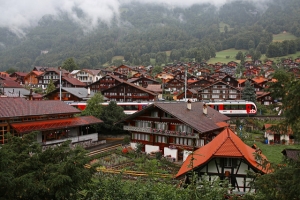Support migrant centric journalism today and donate

Europe needs more immigration if it wishes to remain globally competitive, says two members of the European Commission.
In an article penned by European Commissioners Cecilia Malmström and László Andor, the authors state that there are skills shortages in many sectors of the European job market, including science, health, agriculture, engineering, and tourism -- This is desptie the fact that the EU continues to experience high unemployment rates.
"These deficits will increase and spread rapidly to other sectors because of the EU's severe demographic challenges," the authors state.
According to Malmström and Andor, as early as 2013, the working-age population will start to decline in the EU, with Eurostat projections suggesting that the EU workforce will shrink by as much as 50 million over the next 50 years.
Malmström and Andor are quick to point out that the EU will not need 50 million immigrants and that reducing existing unemployment should be a top priority. However, they feel that increased skilled immigration should play an important role in combating the problem.
For example, they say that recent reports suggest that the EU economy will need between 384,000 and 700,000 IT workers by 2015, and by 2020, between one and two million health-care workers.
"Even with the best policies, it is highly unlikely that all these resources could be found within the Union," the authors said.
"At the same time, global competition for manpower will grow", they added. "If Europe is to keep its position on the global market, we need to make our labour market more attractive to possible migrants."
The European Commission has been proactive in trying to encourage more skilled immigration into the EU. The EU intends to implement a "blue card" which would allow non-EU citizens to live and work in the 27-member bloc. The recent article by two prominent EU Commissioners will it is hoped speed up the introduction of an EU-wide immigration scheme.



















